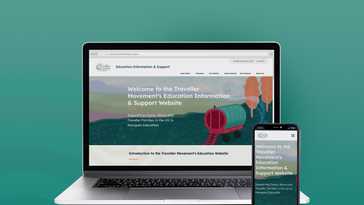
Learn More: Post-16 Education
Going to college or sixth form can be an incredibly exciting time for a young person, who will have the opportunity to study more specialised topics which interest them, and have their freedoms extended to become more independent learners and adults. College courses are free to 16-19-year-olds in the UK, so it important to make the most of the education whilst it is freely available.
Introduction
Turning 16 and having the opportunity to go to college is a significant milestone in any person’s life. It represents a stage where a young person is given more choice and freedom to follow the path they wish, to one day access the job market. It is also the case that many children who struggle at school to fit in or have struggled with bullying, find themselves engaging more effectively with learning as college is a less pressured environment.
What sub-section are available on this page?
-
-
- Do I Have to Go to College?
- Academic Qualifications for Post 16’s
- Early College (14–16-year-olds)
-
Do I Have to Go to College?
In England the mandatory school age, that is the time a young person must remain in education has been extended to 18-years-old. This now means that you can leave school on the last Friday in June if you’ll be 16 by the end of the summer holidays, however you must then choose whether to:
- stay in full-time education – for example at school, sixth form college, further education college
- start an apprenticeship or traineeship
- spend 20 hours or more a week working or volunteering while also doing part-time education or training
Your local authority has a duty to make sure you are offered a suitable place by the end of September after you turn 16. This is known as the September Guarantee. Contact your local authority for information on who can help find you a suitable offer.
You may be eligible for the 16 to 19 Bursary Fund, which can help with things like books, travel, or equipment if you will struggle with education or training costs.
If you have an Education Health and Care (EHC) plan, you can get support to choose your next steps and extra help when you are in education, training or work.
Stay in full-time education
You could take a range of subjects that lead to qualifications that keep your options open, like GCSE or A levels. Courses like T Levels or BTEC allow you to focus on a chosen career area like construction, healthcare science or digital careers. Some careers may ask for specific qualifications, so always do some research into where the course you are interested in might lead.
Combine work and study
Gain practical skills, get work experience and a qualification that employers need.
Academic Qualifications for Post 16’s
If you want to carry on studying some of your favourite subjects or you’re thinking about attending university, you may want to look at the following types of Level 3 qualifications (in England/NI/Wales)/ Level 6 (in Scotland) qualifications:
- A levels – you usually study three subjects or more. There are a wide range of subjects available. They’re usually studied at the same time over two years.
- Scottish Highers– the main qualification required for entry into higher education if you live in Scotland. There are over 60 subjects and you usually study four or five Highers subjects. Each Higher is made up of units. You need to pass all units and the course assessment to achieve the qualification.
- Baccalaureates – these are broad-based programmes that combine academic subjects with components designed to develop skills. The Welsh and Scottish Baccalaureates are available in those countries. The International Baccalaureate is a qualification that is available throughout the world.
- Extended Project Qualification (EPQ) and Interdisciplinary Project – these are taken alongside A levels and involve doing independent study of your choice.
- Core Maths – a group of Level 3 maths qualifications, usually taken alongside A levels or other qualifications, to help develop mathematical skills and thinking after GCSEs.
- GCSEs – if you do not have a grade C/4 or above in GCSE English or maths and are studying at school or college, you will need to retake these subjects to get grades A* to C/9 to 4 (or equivalent level qualifications, this can vary in Scottish universities, you can check this on university websites). If you are a trainee or apprentice you may take Functional Skills qualifications in these subjects, but if you want to go to university later you should try to retake the GCSE. You can also study other GCSE subjects.
Applied Learning
If you’re interested in a particular job family or industry but not yet sure what job you’d like to do, these qualifications might suit you. They combine practical learning with developing knowledge and skills. You can go on to further education, training, or employment, or you can go on to university.
- BTEC diplomas – give you a broader knowledge of a particular sector or industry. They are available in a range of sizes which are equivalent to one, two, or three A levels. They can be taken in combination with other qualifications.
Technical Qualifications
If you know what sort of job you want to do, or want a course that’s more practical, or includes some work experience, these may be the right qualifications for you. There are many types of technical qualifications in a wide range of subjects and career areas, and there are qualifications available for all levels, from entry level up to level 8.
- NVQs and SVQs – provide you with skills to do a specific job and can be taken if you have a full-time job, or are on a course with a work placement.
- T Levels – include a range of qualifications which give you specialist technical knowledge and skills and are recognised as leading to specific job roles.
For more information on courses available, including ones not shown here, please visit the UCAS website.
Early College (14–16-year-olds)
Many colleges in the UK provide early entry admission for 14–16-year-olds (Years 10 and 11). Sometimes these courses can be paid for by your secondary school and your child remains on the school roll. This usually happens when a pupil has a part-time college timetable, for example learning at college one day per week.
Additionally, some 14–16-year-olds can complete a vocational pathway and curriculum entirely at college. This is often done because it has been decided that it will be the most effective way of learning. This can be because a young person is struggling in school, and they are unlikely to remain in school until their exams in year 11. For some young people, an opportunity to focus on a vocation they enjoy, like bricklaying or electrics, with only maths and English being taught as core subject, offers an opportunity to re-engage with learning. College providers deliver accredited programmes and offer young people a taste of what to expect when in employment.
A referral for this scheme will usually need to be done by your school, for more information regarding referral contact the college directly.
It is important to note that not all local authorities provide early college provision for 14-16-year-olds. To check if your local authority offer this, please visit the Gov website for more information.


